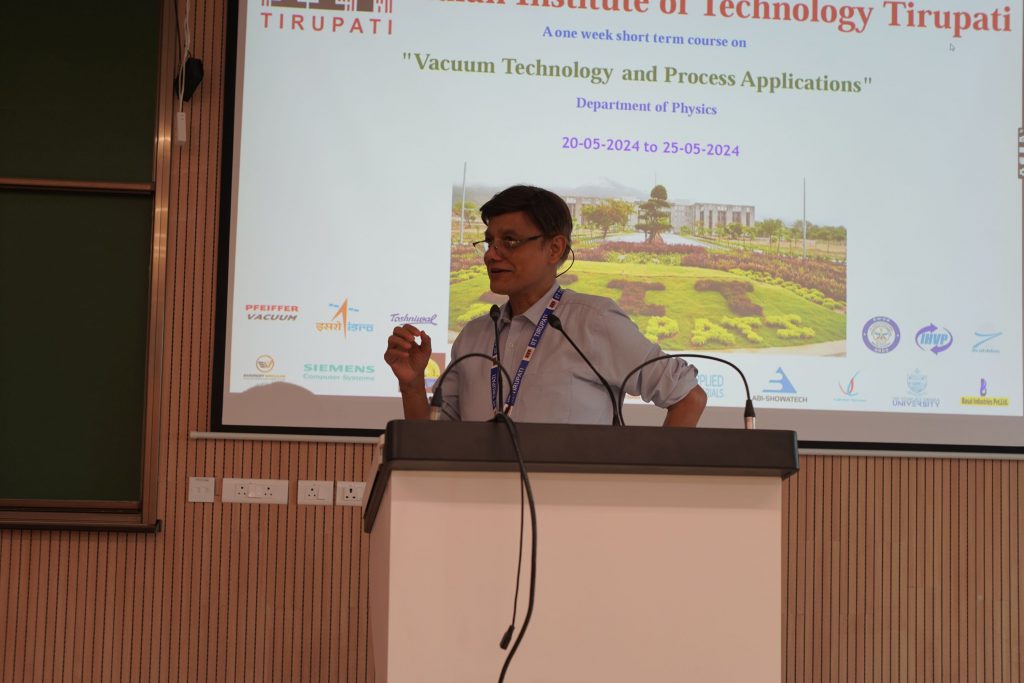
What is there in the chamber when everything is taken out of it? Nothing!
…or Vacuum!!
Vacuum technology is fundamental to Semiconductors manufacturing! A fab process engineer should have a strong understanding of vacuum technology as most chambers have to operate under highly controlled environments. Practitioners in vacuum technology for semiconductors will need to know the nuances of creating ultra-high vacuum.
As a member of the core committee at AICTE, I have made a point of selecting fundamental process engineering topics that we should prepare our future semiconductor engineers on. These engineering topics are selected both for their direct applicability to the semiconductor industry ( with appropriate industry specific nuances) as well as their capability of being a skill that can be ported to adjacent industries. Vacuum technology is one such fundamental topic.
I recently attended a vacuum technology program at IIT Tirupati conducted by respected Dr VV Rao. Besides reliving the fundamentals, I had an opportunity to address the 40+ delegates and I shared the importance of the technology in the Indian aspirations of a vibrant semiconductor sector. By developing it as a portable skill across industries and properly branding India’s semiconductor skill program ( I have proposed FutureSkills-Excel) , we are creating a workforce for the future tech that can get deployed in India or abroad, in semiconductors or in adjacent process industries ( ALD Diamonds, Vacuum distillation sectors etc, to name a few).
Specifically, it is important that the engineers understand the design of the vacuum systems for semiconductor process engineering, the use of multi-stage pumps, roughing pumps and more. They should understand the use of entrapment pumps in semiconductors – and they should understand the significance of discipline in the semiconductor industry.
I have talked of several such nuances in vacuum technology in my discussion. How do we ensure that we get the maximum productivity of our overall manufacturing system? It is important to understand not just what tips can optimise productivity, but also understand the traps that destroy it. It is important to understand how the life of the components of the vacuum system can be extended – or destroyed!
Aspirants need to have a thorough understanding of the fundamentals, be able to use some of the industry prevalent tools to do the vacuum system design to meet the process parameters demanded.
I hope to share more on this foundational topic as time goes by.
Definitely, vacuum technology matters – it is not ‘nothing’!






